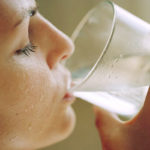Nutrition plays a crucial role in achieving healthy and beautiful skin. Foods rich in antioxidants like fish, fruits, and vegetables help protect the skin. To prevent and improve acne, you need to establish a healthy lifestyle and diet.
Avoid Stimulants
Beverages such as coffee and tea can dehydrate the skin and have various harmful effects on the skin and body. Alcohol also dilates blood vessels, which is why alcohol drinkers often have flushed faces.

Smoking is also harmful to your skin. Cigarettes are a major cause of premature wrinkles and dry skin. Additionally, smoking reduces blood flow to the skin, leading to accelerated aging.
Exercise to Prevent Skin Aging
Exercise is beneficial for all aspects of the body, including the skin. Specifically, exercise improves blood circulation and nourishes the skin effectively. Improved blood flow brings more oxygen and nutrients to the skin, promoting collagen production and preventing wrinkles.
Get Enough Sleep
Lack of sleep can cause dark circles, dull skin, puffy eyes, and more. It’s important to get 8 hours of sleep every day to keep your skin in its best condition.
In addition, sleeping position also affects the skin. You should not rest your face on the pillow in the same position for years as it can cause wrinkles in the pressed areas. Also, avoid sleeping on your stomach as it can cause under-eye bags.

Clean Bedding Regularly
Regularly cleaning your bedding at least once a week not only helps maintain a clean living environment but also prevents the growth of acne-causing bacteria and limits skin-related issues.
Avoid Stress and Overwork
Stress has negative effects on the skin. Studies have shown that stress increases hormone production in the body, making the skin oilier and reducing its ability to fight acne-causing bacteria.
Use Sunscreen
You can prevent melasma by applying sunscreen at all times. In particular, experts recommend avoiding direct sunlight exposure.
About 90% of skin damage is caused by sunlight. As your sun exposure increases, the risk of skin cancer also increases. Therefore, protect your skin by using sunscreen.



































